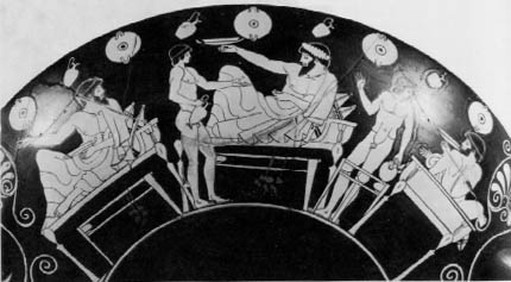Plato's Symposium;
as related to "Hedwig and the Angry Inch"
Plato's Symposium is the basis for the main idea of the broadway show/film "Hegwig and the Angry inch". Hedwig's song "The Origin of Love" is based on the writings of Plato on the topic of love and where it comes from. Plato's introduces us to an ancient myth that was used to explain to people why we are all drawn to the idea of love and our constant need for another person. This myth is non-derogatory in the sense that it includes homosexual and transgendered couples in the story of our creation as separate entities. Plato's telling of the story says that long ago we all roamed the earth as being comprised of two bodies into one. Four arms, Four legs, two heads, etc. Through our acts of defying the God's they decided as punishment we would be split in two and seperated from our other half, instead of killing us they wanted us to suffer eternally in our search for our "other half" thus creating the idea of love.
The symposium goes on to say we acquire all we need from the other person, including knowledge and only when we are united through intercourse and the realization that they are our other half, will we be whole again.
"Socrates sat down and said 'How splendid it would be Agathon, if wisdom was the sort of thing that could flow from the fuller to the emptier of us when we touch each other, like water, which flows through a piece of wool from a fuller cup to an emptier one.'"
(Line 175c)

